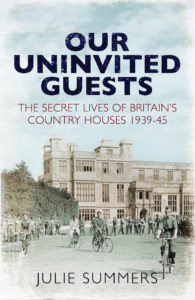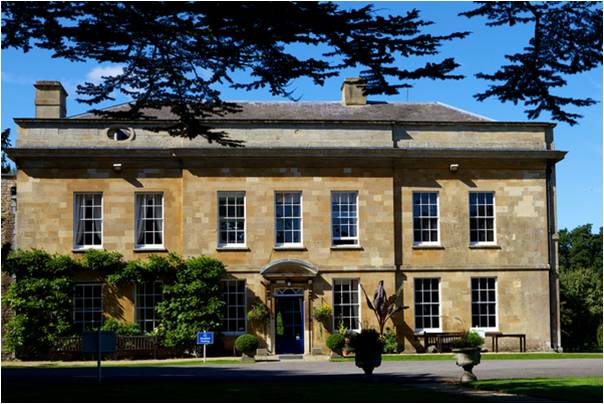In March I had an email from a lady in Australia who I have been corresponding with over the past year or so. I suppose she is what I would describe as an e-friend but I feel that makes her sound unreal, which she most definitely is not. Whatever the description of our relationship, I have discovered that she has excellent taste in reading. She told me recently that she has been reading my books interspersed with detective stories by none other than Agatha Christie. Wow. To be selected to feature on a bookshelf or bedside table next to the greatest writer of detective fiction of all time is quite an honour.
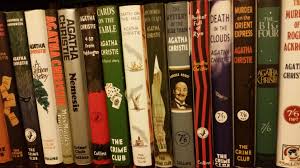 As it happens I have been a huge fan of Agatha Christie for the past thirty-five or more years. After my university final exams, for which I had worked harder than for any other set of exams in my life, I went into a period of shut-down. I hid away in my parents’ farmhouse and read first the entire works of Dostoyevsky, which was perhaps not the wisest of moves, and then the entire works of Agatha Christie, which was a much better decision. I found such pleasure in inhabiting her various worlds and learning to appreciate her brilliant construction, feinting and plot-twisting. What I did not know then but I do know now is that she was a founder member of the Detection Club, formed in 1930, during the Golden Age of Detective Fiction, an era when classic murder mystery novels were overwhelmingly popular.
As it happens I have been a huge fan of Agatha Christie for the past thirty-five or more years. After my university final exams, for which I had worked harder than for any other set of exams in my life, I went into a period of shut-down. I hid away in my parents’ farmhouse and read first the entire works of Dostoyevsky, which was perhaps not the wisest of moves, and then the entire works of Agatha Christie, which was a much better decision. I found such pleasure in inhabiting her various worlds and learning to appreciate her brilliant construction, feinting and plot-twisting. What I did not know then but I do know now is that she was a founder member of the Detection Club, formed in 1930, during the Golden Age of Detective Fiction, an era when classic murder mystery novels were overwhelmingly popular.
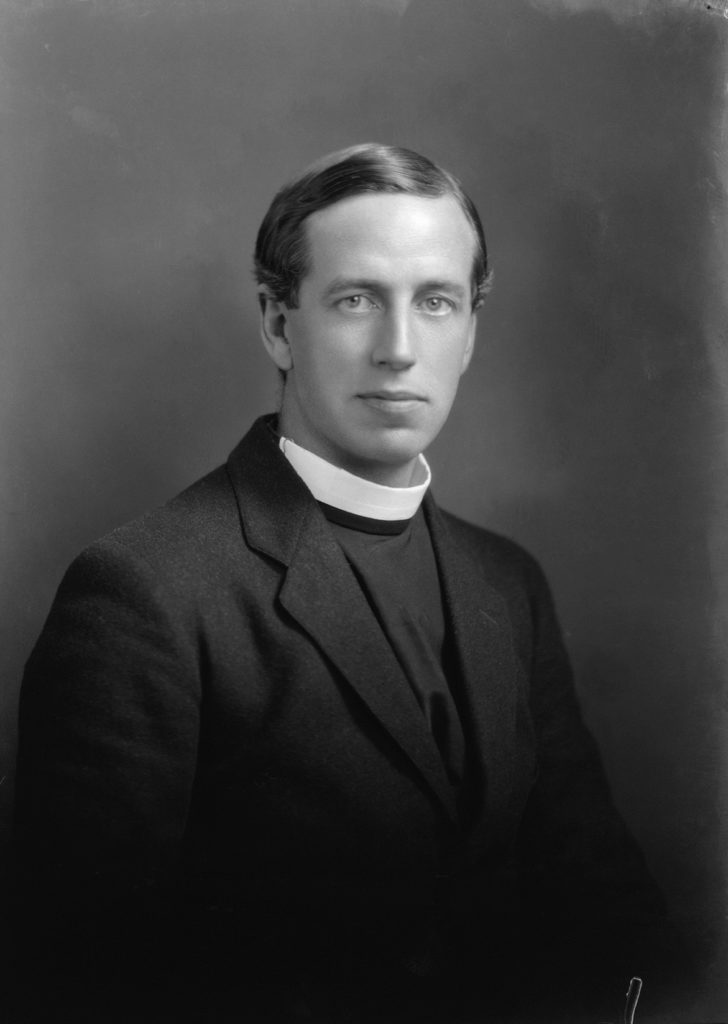
The club included among its members the writers Dorothy L. Sayers, Hugh Walpole, G.K. Chesterton (its first president) and Monsignor Ronald Knox. This last man is the link in the chain to my most recent book but I will come to that in a while. The club’s oath is glorious: ‘Do you promise that your detectives shall well and truly detect the crimes presented to them using those wits which it may please you to bestow upon them and not placing reliance on nor making use of Divine Revelation, Feminine Intuition, Mumbo Jumbo, Jiggery-Pokery, Coincidence, or Act of God?’
Members had a set of guidelines which were drawn up by Knox and were known as the Knox Commandments. It might seem rather odd that a man of faith, a man described by some as the greatest Roman Catholic scholar of the twentieth century, should be a member of a detective writing club but that is the delight of this great polymath. He wrote detective stories in the same way he might have set a crossword puzzle. He was not interested in the emotional motives of his perpetrators but in the solving of a crime that could keep the reader guessing right to the end of the book. And he wrote the books – ten in all – to supplement his modest stipend.
His Commandments number ten, of course, and were adhered to by the members. They forbid the murder being committed by the detective. A Watson-type side-kick has to reveal all thoughts that pass through his mind; the detective cannot conceal any clues he finds, and twin brothers and doubles ‘generally must not appear unless we have been duly prepared for them’. Most of the rules stand the test of time, such as no supernatural or preternatural agencies being permitted or no hitherto undiscovered poisons, but others strike one as anomalous today such as ‘no Chinaman must figure in the story’. He also suggests that no more than one secret room or passage should be allowed. Unless today’s detective stories are set in old houses I feel the secret passage is rather outdated. Having said that, Knox spent the Second World War in a haunted house in Shropshire, so I suspect that secret passages were not far from reality at Aldenham Park.
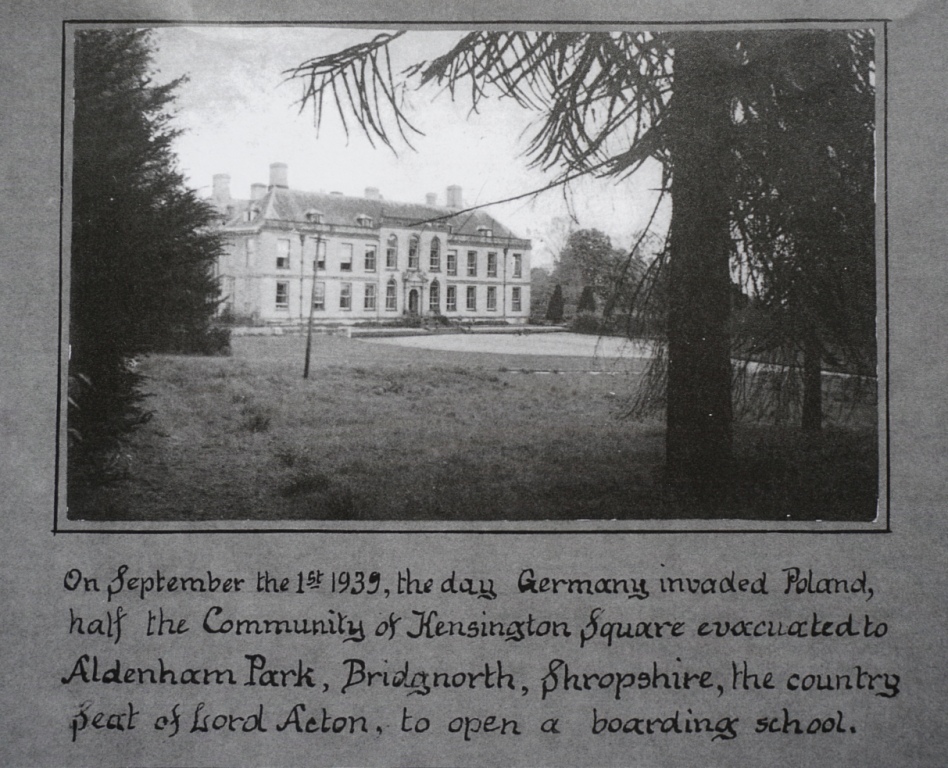 Ronald Knox gave up writing detective stories in 1937 at the request of Lady Daphne Acton (although he did publish one last story in 1947). He had taken her on as a pupil as she wished to convert to Catholicism as he had done twenty years earlier. She was twenty-five, beautiful and highly intelligent. Before they first met he had been alarmed at the prospect of instructing a young woman – his own experience having been at Oxford and then at Bury St Edmunds where he came across few women in the course of his ministry. But he need not have worried. She put him immediately at his ease and he was soon captivated by her. Her brother-in-law invited him to accompany them on a cruise to the Adriatic and it was there that the two of them made a pact: Ronald would give up writing detective fiction (Lady Acton threw a copy of Double Cross Purposes overboard) and she would stop wearing the colour of lipstick he disliked. That went into the blue waters as well. She would offer him peace and a place to work, which he yearned, and he in turn would continue to instruct her.
Ronald Knox gave up writing detective stories in 1937 at the request of Lady Daphne Acton (although he did publish one last story in 1947). He had taken her on as a pupil as she wished to convert to Catholicism as he had done twenty years earlier. She was twenty-five, beautiful and highly intelligent. Before they first met he had been alarmed at the prospect of instructing a young woman – his own experience having been at Oxford and then at Bury St Edmunds where he came across few women in the course of his ministry. But he need not have worried. She put him immediately at his ease and he was soon captivated by her. Her brother-in-law invited him to accompany them on a cruise to the Adriatic and it was there that the two of them made a pact: Ronald would give up writing detective fiction (Lady Acton threw a copy of Double Cross Purposes overboard) and she would stop wearing the colour of lipstick he disliked. That went into the blue waters as well. She would offer him peace and a place to work, which he yearned, and he in turn would continue to instruct her.
In June 1939 Knox moved books, curtains, furniture and a lifetime of memories from Rose Place in Oxford to the Acton’s family home, Aldenham Park in Shropshire. His plan was to fulfil his life’s ambition which was to translate both books of the Bible from the Latin Vulgate into English. It was a task American scholars had estimated would take a decade using ten translators. Knox completed it in less than five years and in considerably less peace and quiet than he and Daphne Acton had anticipated. A day before Chamberlain announced that the country was at war with Germany, nine nuns and five lay sisters from the Convent of the Assumption in Kensington arrived at Aldenham at the invitation of Lord Acton.
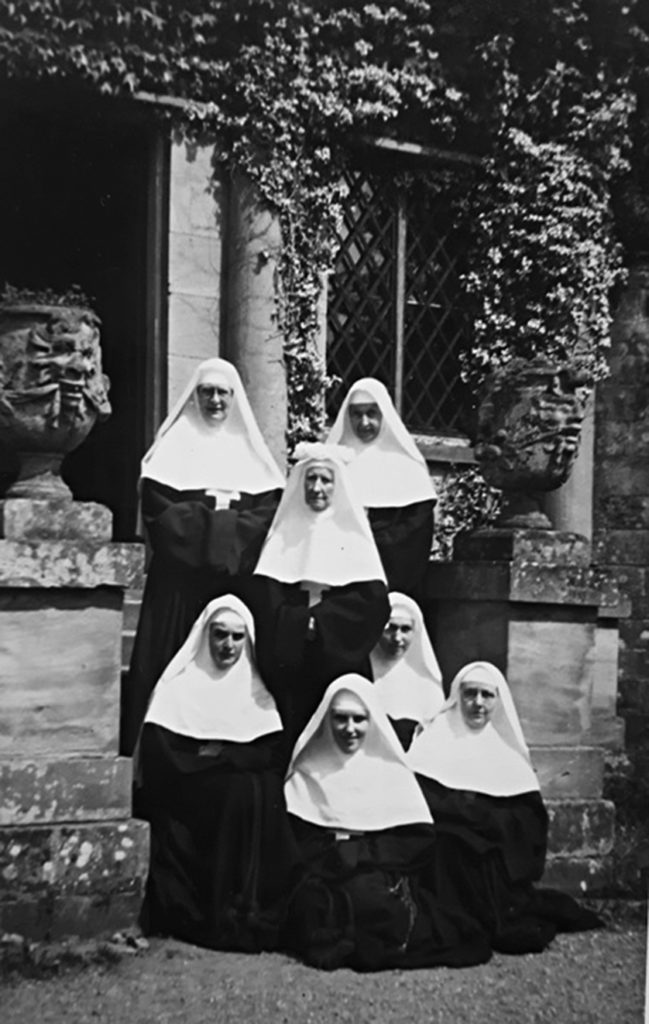
Three weeks later fifty-five girls between the ages of eleven and seventeen arrived to be taught by the nuns. Lord Acton had been approached by the Reverend Mother and thought it more satisfactory to have a girls’ school at his country house than the army. It turns out he was right. To have the army take over was the worst possible outcome for home owners as their needs were opposed in almost every way to those of the previous incumbents. Large country houses had been looked after by armies of servants for a small number of spoilt inhabitants. When the tables were turned and armies of officers and soldiers were looked after by a small number of men from the catering corps, the houses were found to be completely inadequate: no central heating and few bathrooms were just some of the problems that confronted the new occupants.
Knox moved into the gardener’s cottage and worked in the corner of Lady Acton’s sitting room. It was in this small space that the Knox Bible was translated in an atmosphere of girls, ghosts and godliness. It was surely one of the strangest juxtapositions of the Second World War. Ronald Knox continued to correspond with members from the Detection Club and remained close personal friends with Agatha Christie, whose house Greenway in Devon was requisitioned by the US Coast Guard.
Lives entwined, experiences shared and all mixed up on a bookshelf in Australia. Thank you, Ellen Hall, for reminding me how much I love historical coincidences.
